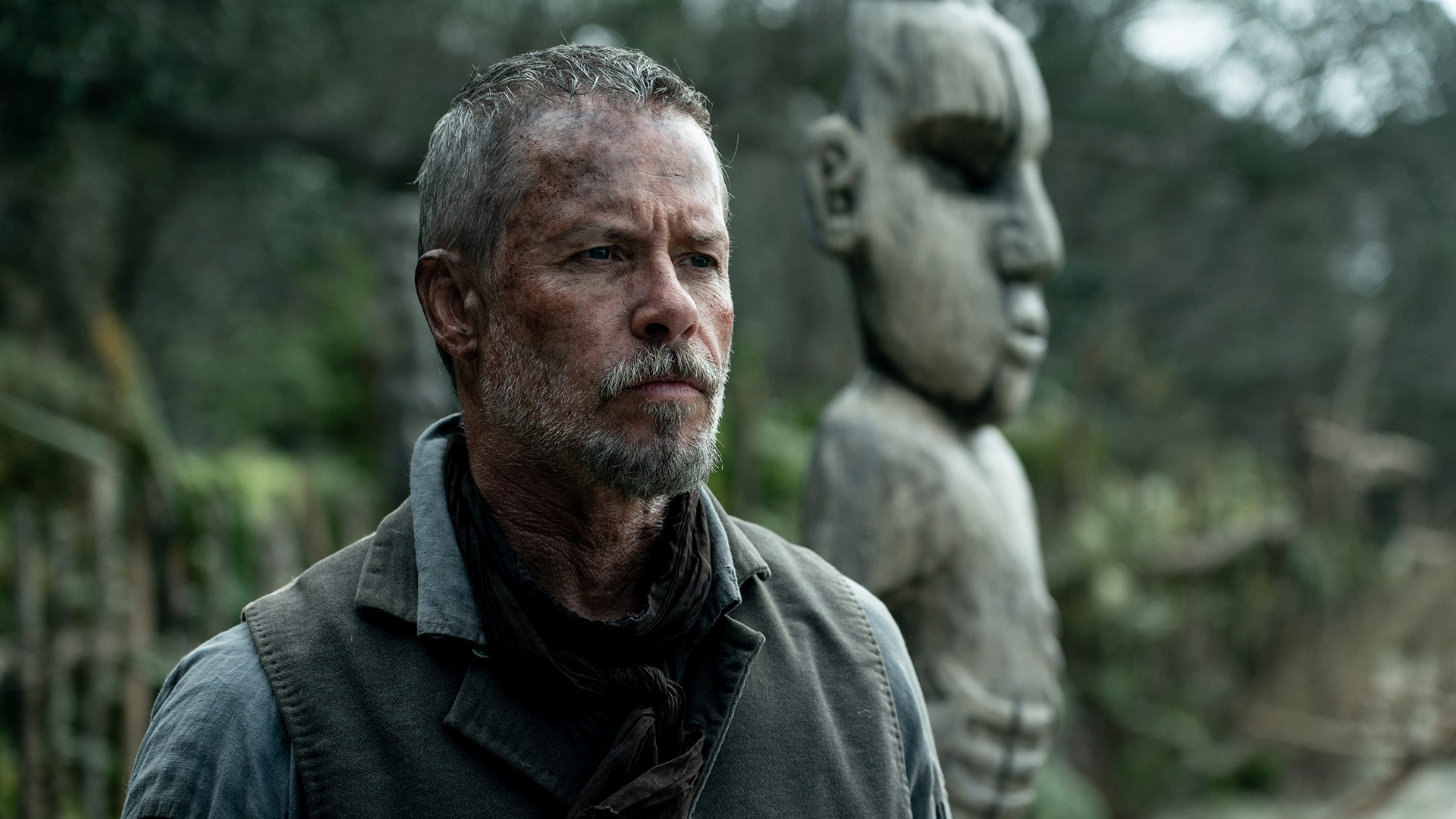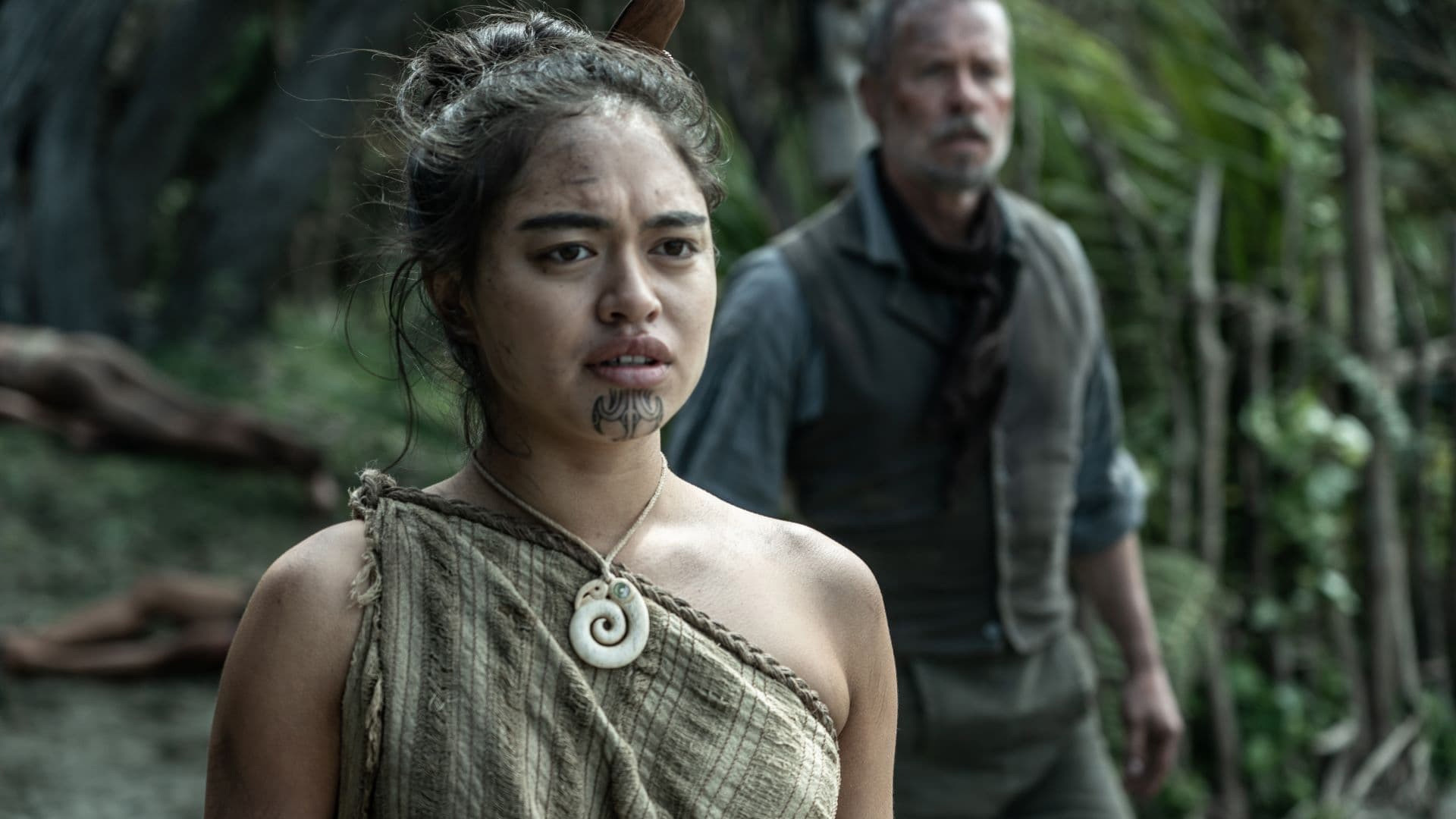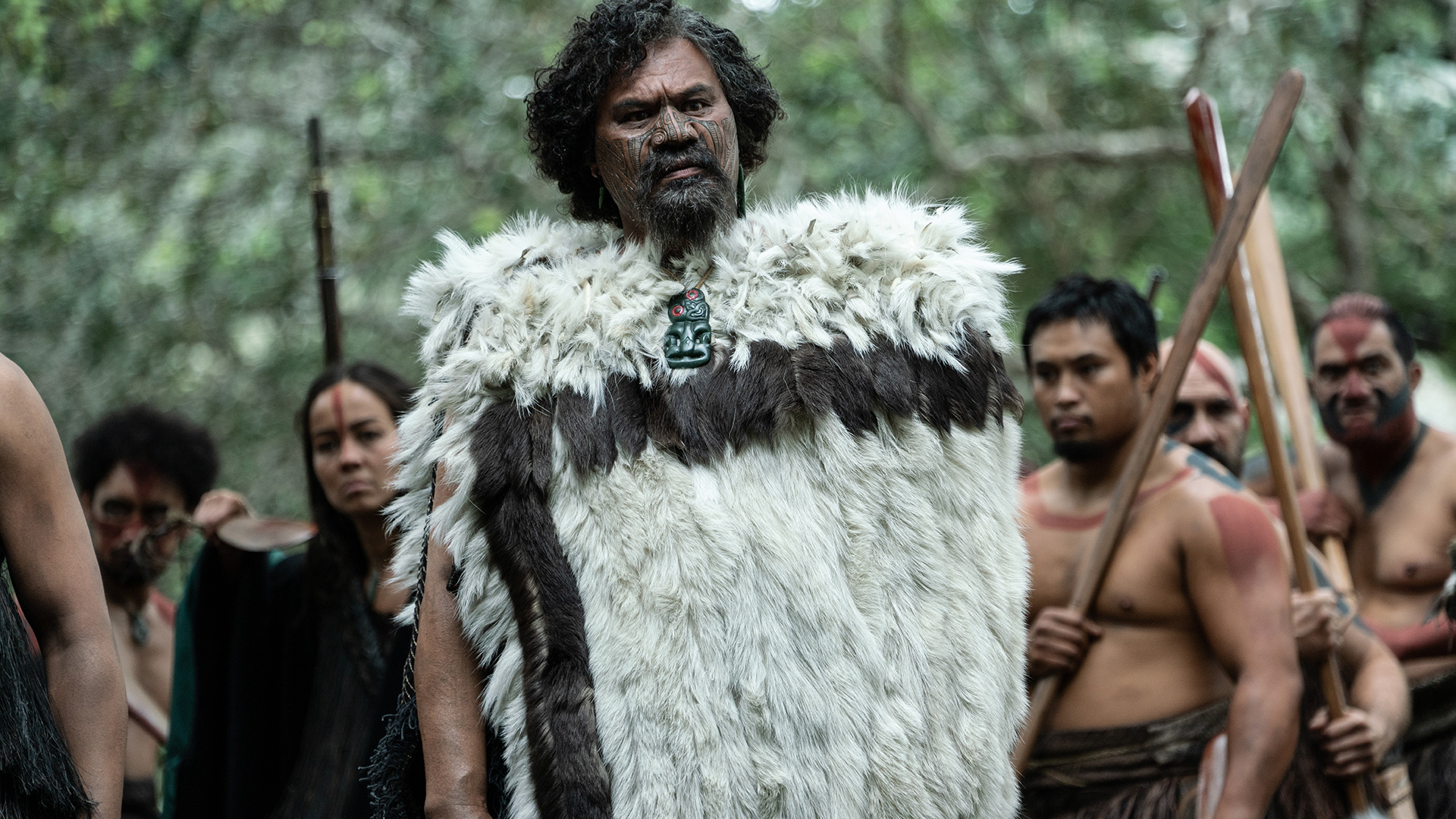Lee Tamahori’s The Convert weaves a strong net of spectacle and sorrow
When the story finds its way back to the central conflict, The Convert compels.

A lay preacher finds himself caught in the crossfire of two warring tribes in 1830s New Zealand in Lee Tamahori’s The Convert. In some measures, arguably the most important measures, Liam Maguren says the film hits its marks.
No voyage through Aotearoa New Zealand’s recent history can avoid The Musket Wars. Though Pākeha were well and truly settled during this time, the country was still a dominantly Māori world, the British not yet fully engaged in colonisation until a few decades later, leading to the New Zealand Wars (captured in director Geoff Murphy’s classic Utu).
While the New Zealand Wars devastated the people and the land, the death toll was a mere blip in comparison to The Musket Wars. It’s tragic, uneasy, confronting material to turn into compelling cinema, but if anyone in the country could do it, it’s the man who would make the tragic, uneasy, confronting Once Were Warriors a New Zealand classic. In some measures, arguably the most important measures, Lee Tamahori’s The Convert hits its marks.
Set in 1830s Aotearoa, the story centres on British missionary Thomas Munro (Guy Pearce), arriving to a small Pākeha settlement that finds itself uncomfortably close to the crossfire between two warring iwi. On day one, Munro finds himself in a hostage negotiation with one of the two tribal leaders, Akatarewa (Lawrence Makoare), pleading for the life of the other leader’s daughter, Rangimai (Tioreore Ngatai-Melbourne). Everyone else is killed, and when this news reaches her father Maianui (Antonio Te Maioha), tensions boil to the top of the pot.
But then a hefty sag in the narrative brings that tension to a simmer with the introduction of te reo-fluent local woman Charlotte (Jacqueline McKenzie), a dance that takes Rangimai’s interest, a fleeting bit of teenage romance, some small-town politics, and a crime that doesn’t come to a satisfying conclusion. Detouring from the film’s central drive, these early parts feel like moments we’d see fleshed out better in a director’s cut and possibly connect to the heart of the story in a more satisfying way. Even Munro’s job as a Christian missionary plays out superficially, which feels like a missed opportunity (though the film justifies its title near the end in a more unexpected way).
Fortunately, when the story finds its way back to the central conflict, The Convert compels. Pearce is as reliable as ever as Munro, effortlessly wearing his proper manners and good intentions on his sleeve while making slight suggestions of a past he’d rather keep up that sleeve. Some may feel his character creeping towards the White Saviour route, especially when Munro dishes out some well-meaning but condescending pleas for the tribes to make peace without much consideration of tikanga or the long strands of history plaguing this feud. Even the poster, which features Pearce and Makoare head-to-head, makes it seem like Munro’s one of the leaders of this conflict, when it’s really Akatarewa and Maianui’s battle to lead (that’s marketing for you).
But this isn’t Dances With Wūruhi. The power of leadership for Maianui’s people remains with Maianui, and while Munro proves useful, he is but one of many tools at the iwi’s disposal, relegating Munro to the role of an audience avatar rather than Great Pākeha Hope. His main contribution to the inevitable battle comes not from his unsolicited advice, but from personal pain solicited within the walls of a marae, engaged in the kinds of kōrero that values complete openness.

That emotional openness reads clearly through Ngatai-Melbourne’s superb performance as Rangimai, nimbly hopping from wide-eyed curiosity in one scene to fiery stares of anguish in the next. Te Maioha exhibits a different but equally stirring kind of openness as Maianui, his composed demeanour reflecting his character’s mana but never masking a face filled with years of torment. Makoare can feel a bit one-note by comparison, his bloodthirsty Akatarewa motivated by gleefully violent supremacy and little else, but he plays that note so well, it’s hardly a distraction.
When The Convert reaches its inevitable musket-fuelled climax, it weaves a strong net of spectacle and sorrow. Technically, it’s impressive, Tamahori ably capturing the distressing flurry of warfare through frantic editing that doesn’t disrupt the strength of its cinematography. At the same time, the film makes you no stranger to the fact that the use of muskets over patu and taiaha vastly accelerated the number of deaths. Wisely, the excitement of the action never eclipses the tragedy of the moment.
The British men who happily traded muskets to Māori justify their acts through the ignorant notion that Māori will kill themselves with any kind of weapon, so why not sell them a gun? The impact of the finale slams the counterpoint home, concluding with a profound perspective on the fluid meaning of utu—it can be an eye-for-eye act of violence, perpetuating a vicious cycle of violence, but it can also be an act of rebalancing, a means of restoration and looking forward. The Convert never invalidates either interpretation and it’s stronger for it.

None of this would have much feeling or impact had it not been for the lavish production. Whatipū beach makes for a lavish locale to cinematically hang out in, and the period details impress mightily. When it comes to bringing Te Ao Māori to film, The Convert feels like a massive step up from The Dead Lands, which impressed back in 2014. It begs the question: what are the next steps for Te Ao Māori and Cinema Aotearoa?
“The Musket Wars were horrific, but that’s the nature of war—not the nature of Māori.” Māni Dunlop said this at the end of the Musket Wars episode of RNZ’s superb Aotearoa History Show and it’s an important thing to keep in mind—both in its historical context and the context of Māori representation. Films like The Convert, The Dead Lands, and Utu have their rightful place, but if we want to see a more fulfilling representation of Māori on film, one that can’t be used to fuel the scientifically false and sociologically harmful “warrior gene” myth, we need to see pre-colonial Aotearoa on film that isn’t steeped in tragedy or warfare.
If films like The Convert can inform current and future generations of historical pains, then pre-colonial films about Māori as explorers, innovators, agriculturalists, and storytellers can inform current and future generations of the empowering nature of being Māori. Ka mua, ka muri.























